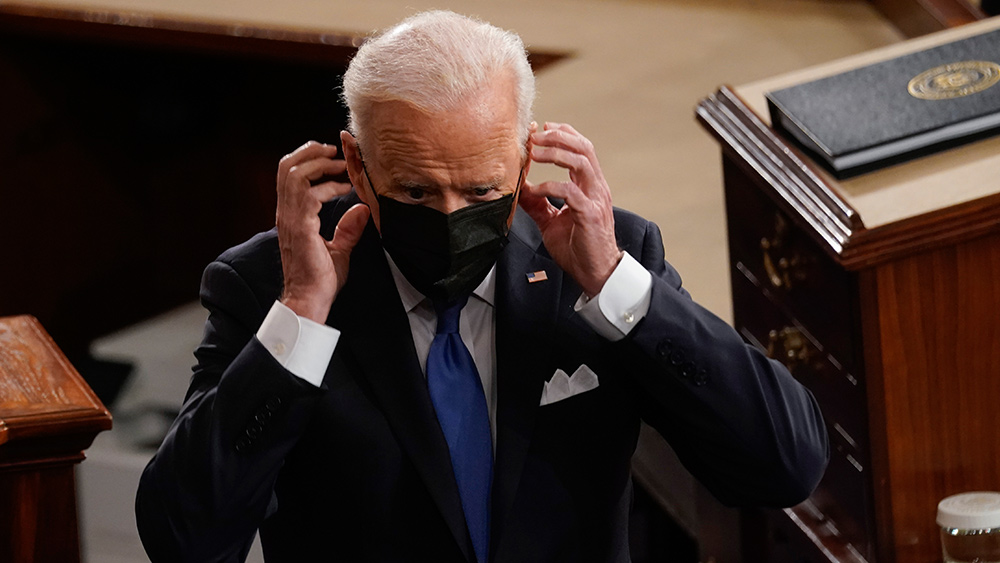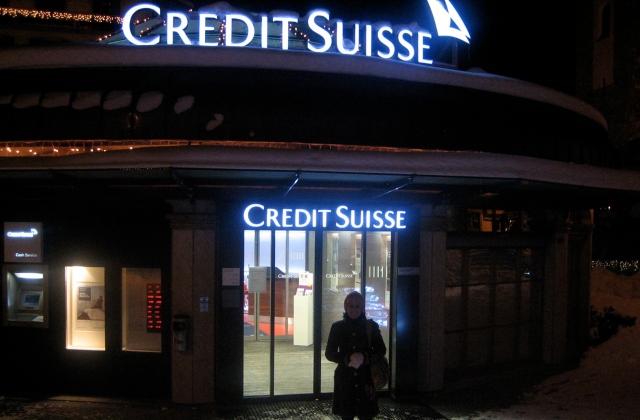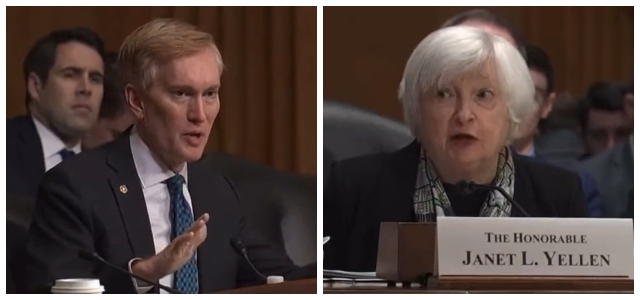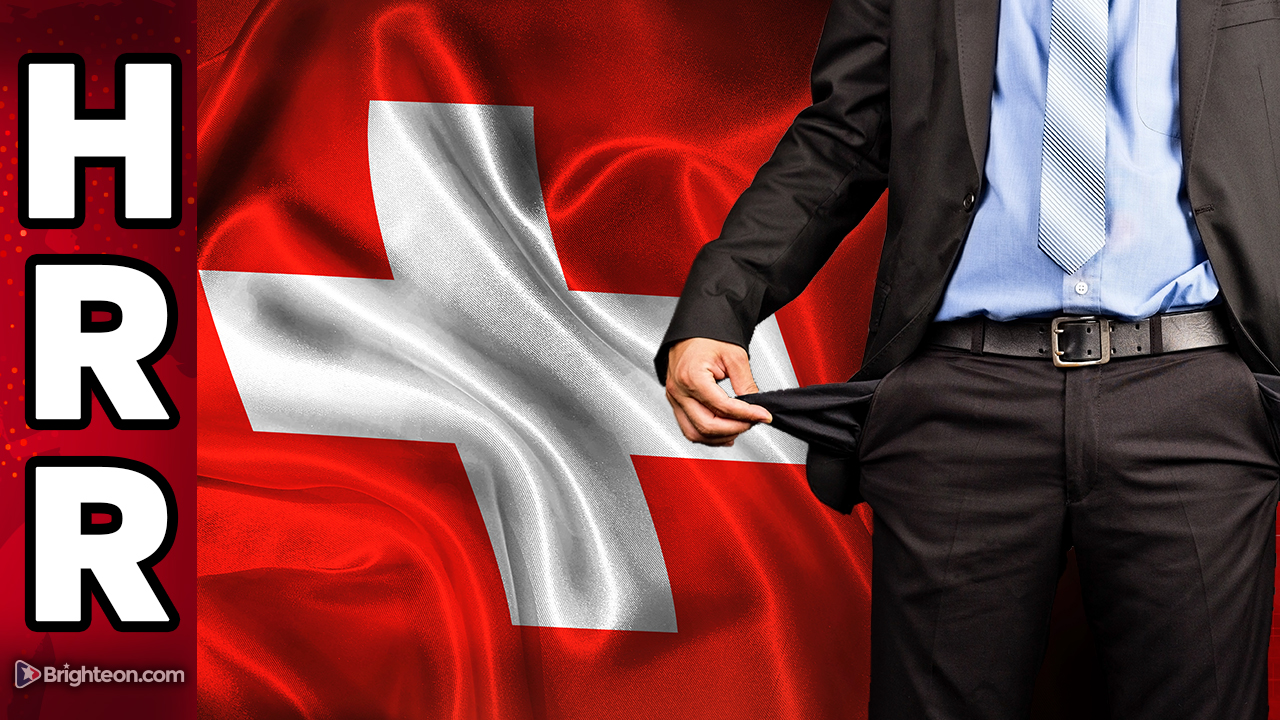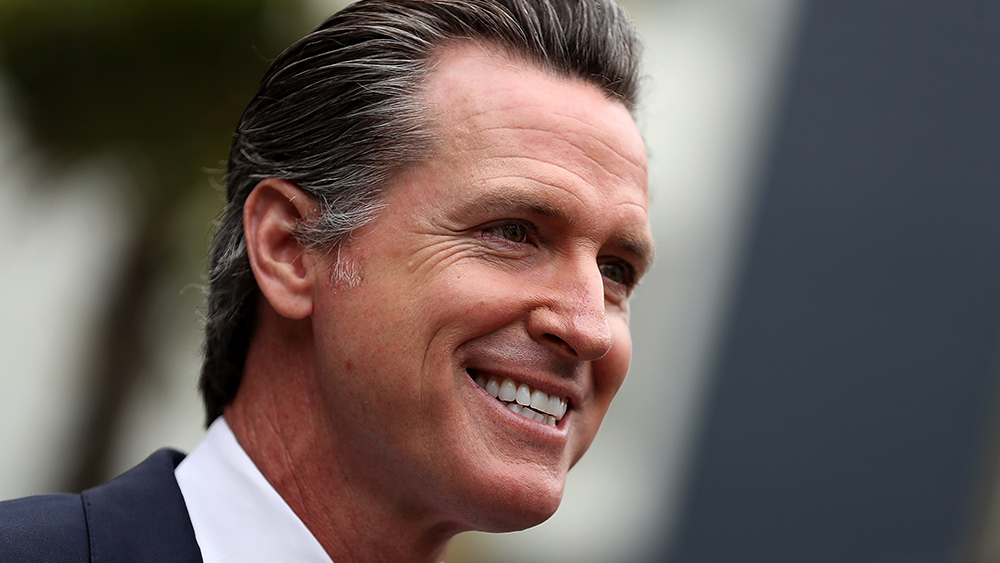Shares of Deutsch Bank tumble after cost of ensuring its default spikes as global financial meltdown continues
03/26/2023 / By JD Heyes
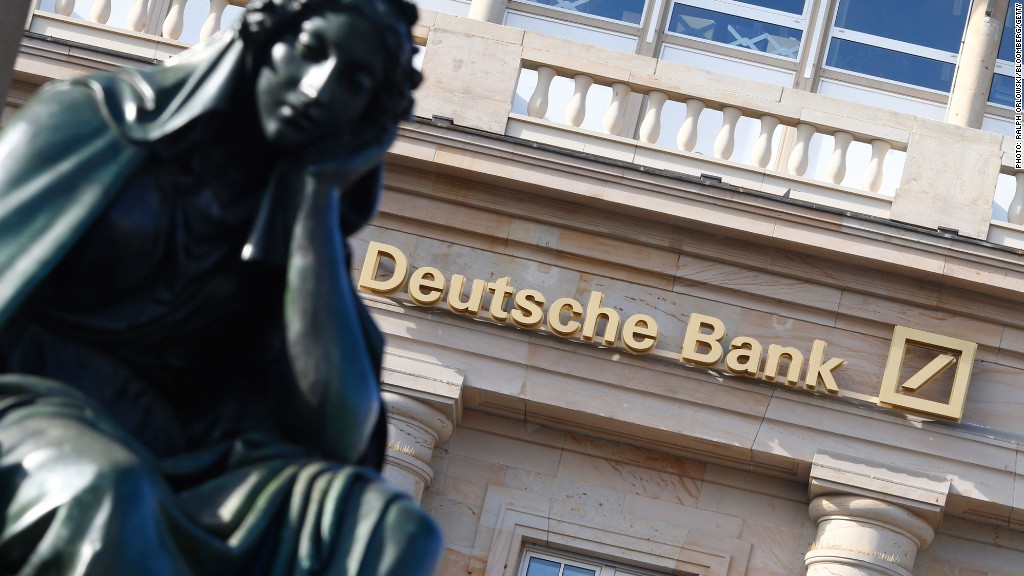
The global financial meltdown, once again triggered by woke leftists in the U.S. who made ideologically based investments at their banks, is continuing to spread.
On Friday, Deutsche Bank shares experienced a decline after a surge in credit default swaps the night before, as worries over the stability of European banks continued. The stock, which is listed in Frankfurt, plummeted by 14 percent at one stage during the session but managed to reduce its losses and closed 8.6 percent lower on Friday afternoon, CNBC reported ahead of the weekend.
Investor concerns of contagion were exacerbated on Wednesday by the U.S. Federal Reserve’s monetary policy tightening, following the emergency rescue of Credit Suisse by UBS, in response to the collapse of U.S.-based Silicon Valley Bank.
Global and Swiss regulators as well as central banks had hoped that the arrangement of Credit Suisse’s sale to its domestic rival would ease concerns in the markets, but investors are still not convinced that the deal will be sufficient to alleviate the strain in the banking industry, CNBC noted further.
“Deutsche Bank’s additional tier-one (AT1) bonds — an asset class that hit the headlines this week after the controversial write-down of Credit Suisse’s AT1s as part of its rescue deal — also sold off sharply,” the outlet reported.
On Friday, major European banking stocks suffered broad declines with Deutsche Bank leading the pack. Its Frankfurt-listed shares were down by 8.6 percent. Its German rival, Commerzbank, fell by 9 percent, while Credit Suisse, Societe Generale, and UBS each fell by over 7 percent. Barclays and BNP Paribas also experienced drops of more than 6 percent.
Deutsche Bank completed a multibillion-euro restructuring in 2019, which aimed at cutting costs and improving profitability, resulting in ten consecutive quarters of profit. The bank reported an annual net income of €5 billion ($5.4 billion) in 2022, a 159 percent increase from the previous year. Deutsche Bank’s CET1 ratio, a measure of bank solvency, stood at 13.4 percent at the end of 2022, while its liquidity coverage ratio was 142 percent and its net stable funding ratio was at 119 percent. These figures suggest that there is no apparent concern regarding the bank’s liquidity or solvency position.
German Chancellor Olaf Scholz spoke at a news conference in Brussels on Friday and stated that Deutsche Bank had thoroughly restructured and modernized its business model, and is a very profitable bank. He also stated that there is no reason to speculate about the bank’s future.
Following his comments, markets slightly reduced losses. Additionally, European Central Bank President Christine Lagarde told EU leaders that the euro area banking sector was resilient due to strong capital and liquidity positions, as well as post-2008 reforms. She also assured them that the ECB toolkit was equipped to provide liquidity to the financial system if required, the outlet’s report continued.
According to Moody’s report on Wednesday, financial regulators and governments have taken action in recent weeks to contain the risk of contagion from the issues exposed at individual lenders. The report also stated that these measures should “broadly succeed” in addressing the concerns, CNBC continued.
“However, in an uncertain economic environment and with investor confidence remaining fragile, there is a risk that policymakers will be unable to curtail the current turmoil without longer-lasting and potentially severe repercussions within and beyond the banking sector,” the ratings agency’s credit strategy team said.
“Even before bank stress became evident, we had expected global credit conditions to continue to weaken in 2023 as a result of significantly higher interest rates and lower growth, including recessions in some countries,” the team added.
It should be noted that these quick actions being taken by central banks and governments using taxpayer funds are just that — quick fixes. They do not (and will not) address the underlying problem, which is that left-wing “wokeness” is now the priority when it comes to investments and lending strategies, not profitability or protecting investors. And that’s why these banks are cratering.
Sources include:
Submit a correction >>
Tagged Under:
bank bailouts, bank collapse, banking, banksters, Collapse, contagion, costs, Deutsch Bank, dollar demise, economic riot, failed bank, finance, finance riot, financial collapse, illiquidity, Inflation, insurance, liquidity, losses, money, Moody's, quick fix, risk, taxpayer bailout, woke investing
This article may contain statements that reflect the opinion of the author
RECENT NEWS & ARTICLES
COPYRIGHT © 2017 PENSIONS.NEWS
All content posted on this site is protected under Free Speech. Pensions.news is not responsible for content written by contributing authors. The information on this site is provided for educational and entertainment purposes only. It is not intended as a substitute for professional advice of any kind. Pensions.news assumes no responsibility for the use or misuse of this material. All trademarks, registered trademarks and service marks mentioned on this site are the property of their respective owners.

